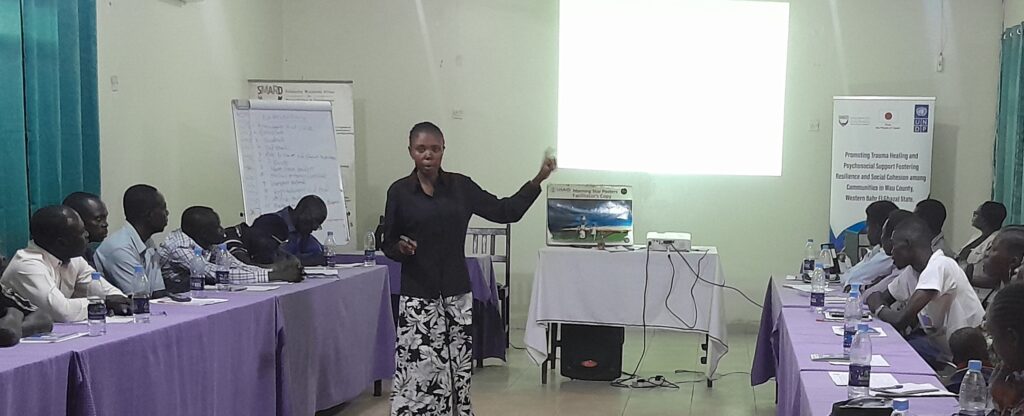A five-day training on Trauma Healing and Psychosocial Support, targeting 30 participants began on Monday in Wau County, Western Bahr el Ghazal state.
The training aims to foster resilience and social cohesion within the community while addressing critical issues such as suicide and other violence-related crimes. It also seeks to tackle activities that sometimes lead to violence due to mental health challenges, particularly among young people.
William Madut, Project Manager of SMARD, told Radio Tamazuj that the training is intended for individuals most affected by the ongoing conflict and those returning from Sudan. “Today, we are conducting a training for community volunteers in Wau County. South Sudan has faced severe violence since 2012, with Western Bahr el Ghazal being one of the hardest-hit states,” Madut said.
He highlighted that violence-related trauma, including death, injury, loss of property, and sexual violence, leaves lasting emotional scars, creating significant mental health challenges for affected individuals. “These issues leave people with wounds in their hearts and minds, which leads to trauma,” he noted.
Madut further explained that the Government of Japan, in collaboration with UNDP, initiated this project to provide support for trauma healing within communities. “The Government of Japan and UNDP came together to support trauma-affected communities under the Peace Project, and SMARD has partnered with them to implement this initiative for those most affected in Western Bahr el Ghazal, including internally displaced persons and returnees from Sudan,” he said.
Several participants expressed their gratitude for the training, noting that it has helped them understand the root causes of trauma-related issues, such as suicide and destructive behavior, in their communities.
Julia Alberto Elia, one of the participants, emphasized the importance of the training. “This training is crucial for everyone because it explains why people become involved in trauma situations. It will help reduce crimes related to suicide, as many youth are taking their own lives due to unknown causes. Children are also roaming the streets without understanding why,” she said.
Elia added that the workshop has provided valuable insights into helping those suffering from mental health challenges. “In these five days of training, we will learn how to communicate with individuals who are mentally unwell or exhibiting psychological distress,” she said.
Another participant, Anthony Jafkana Daniel, also shared his experience. “I am so grateful to UNDP and the local organization for organizing this training. I hope that by the end of this workshop, we will be able to heal the wounds in the hearts of others,” he said.
Daniel also mentioned that the training had personally helped him overcome his own trauma. “Before the training, I was unhappy with myself. But now, I’ve begun to find a way out of the trauma I was experiencing,” he added.
He urged the community to be more attentive to those struggling with trauma. “Many people on the streets talk to themselves, which shows they are affected by trauma. We need to come together as a community and help those who are suffering,” he said.
This project is being jointly implemented by Solidarity Ministries Africa for Reconciliation and Development (SMARD), with support from UNDP’s Peace and Community Cohesion Project, and the Government of Japan.




